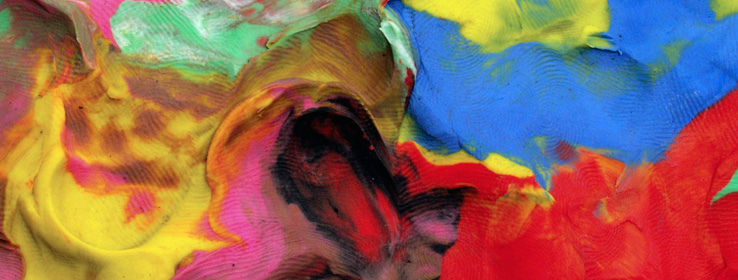Did the end of the 20th century also mark the end to neighborhoods of subdued gray, beige and white homes punctuated by the occasional green door or blue shutter? Or will subtle neutrals continue to be a new-home default décor well into the new millennium?
According to results from research commissioned by The Sherwin-Williams Company, the answer to both questions is, "yes." The Company recently asked homebuilders — ranging from builders of starter homes geared toward first-time buyers to builders of high-end custom houses — how they factor paint and color options in new home sales and discovered that though neutrals are still used extensively both indoors and out, the taste for color is definitely on the upswing. And increasingly, builders are realizing their homebuyers' interest in color can be a profit and customer-satisfaction opportunity that's just waiting to be explored.
What Consumers Want
In general, home décor industry trends indicate that interest in color is growing because consumers' awareness of color is on the rise. Not only have advances in color technology made it possible for more bold, highly saturated and accent shades to make their way into paint, as well as into home fixtures and furnishings of all kinds, but today's consumers are now simply more aware of color than ever before. Influenced by what they see in everything from the glossy pages of home fashion magazines to web pages on the Internet, and from television and movie sets to cable network design programs, consumers view color as a personal signature that defines their unique taste and style. Whether the approach is hands-on do-it-yourself, or working in collaboration with a professional designer or decorator, consumers are less timid about moving beyond the "safe" shades and more adventurous about exploring the richer, brighter or crisper color options. However, when it comes to new home sales, aesthetic satisfaction is important, but not all homebuyers expect their builders to provide myriad color options. For instance, even though starter-home buyers may like color just as much as other consumers, they're generally more concerned with the important basics of new-home budgets and move-in dates. Thus, these buyers are often content with palettes where homebuilders limit color schemes to a few subdued shades that have broad appeal.
Homebuilders in Sherwin-Williams survey agree that consumers want more color and style, especially for interior spaces. According to the research, buyers of semi-custom and custom homes are using paint to be more dramatic, and are asking for more warm, sunny paint shades - including reds. These more vibrant colors are proving especially popular in the vacation home segment. Builders report the very high end of the upscale market is using more pastels and antique hues, and that buyers of second or third new homes tend to be very color conscious. And it isn't just paint color that's catching buyers' interest — it's also paint finish. Survey results indicate that up market builders are seeing an increased demand for eggshell finishes, as well as semi-gloss and special luster finishes. Faux painting in kitchens, baths and powder rooms is also popular with this segment of the new home construction market.
The Homebuilder Perspective
Though homebuyers do have a greater interest in color, some homebuilders surveyed by Sherwin-Williams — notably, starter- and tract-home builders — tend to limit exterior color choices because often, these builders must focus on fast turnaround times and strict production deadlines in order to remain profitable and meet the budget and move-in expectations of their customers.
Middle-market homebuilders are the most likely to offer color upgrades should their customers want more than the basics. In fact, many of these builders encourage their buyers to consider paint color upgrades, and are successful in those efforts up to 50 percent of the time.
Spec home builders tend to choose neutral shades for the widest possible appeal to potential home buyers. Where spec homes are larger and more expensive, interior designers and architects may be involved in the color selection process.
On the other hand, survey results note that most custom home builders and up market semi-custom builders typically offer their buyers a full palette of interior colors, and so don't tend to view paint color as an upgrade option.
Choosing Color
Most homebuilders who allow buyers to pick their own colors are often actively involved in the color decision loop, though there are some builders who outsource the service to others in order to better serve homebuyers. Builders say they offer color selection support in any number of ways, ranging from providing color scheme displays in model homes and sales offices to using paint-manufacturer-supplied selection tools like fan decks and scheme cards. Several of the surveyed builders noted that they started the color selection process by offering buyers a review of the fan deck, then followed up by presenting customers with larger color-box or color-file samples, then larger-size sample boards, and completed the process with on-wall samples. Though this process takes time, it also helps ensure buyer satisfaction.
Many of the builders said they send their clients directly to the local paint retailer, where homebuyers can view the full spectrum of color options, and work with the store's paint and décor staff to select shades that fit within a given design plan or criteria. Having an interior designer on staff — or subcontracting the job to a design professional — provides homebuilders another tool to help ease buyers through the color selection process.
Though not all homebuilders, for deadline and cost reasons, want to throw open the color option doors to include a universe of hues, nearly all recognize that smart use of color — even subdued or neutral color — adds curb appeal and can be a welcoming invitation to potential homebuyers. Ultimately, profitability and customer satisfaction hinge on understanding what's important to specific market segments, and offering color options — be they broad-appeal neutrals or variety-filled palettes which include bold, highly saturated and vivid shades — that meet buyers' new home expectations.




